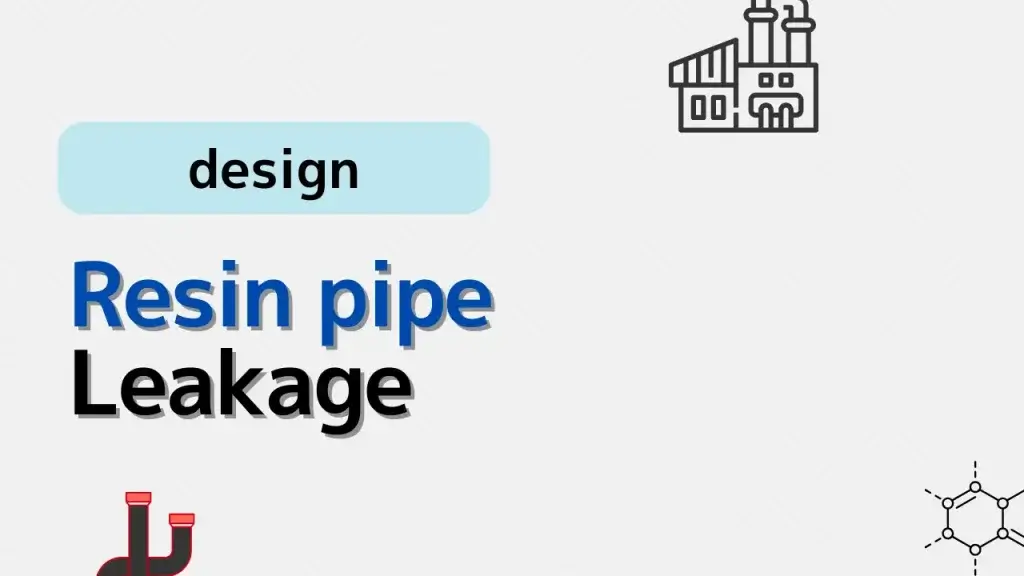Resin piping is widely used in chemical plants because of its corrosion resistance and lightweight. However, it is also known for being more prone to leaks compared to metal piping. Understanding the reasons for leakage and how to prevent it is essential for maintaining safe and efficient plant operations.
This article explains the common causes of resin piping leaks and offers practical tips for prevention.
Introducing articles from plantengineering.com.
Plastic piping is not often used in chemical plants.
It is widely used in the world.
When using plastic piping, you must assume that there will be leakage.
In chemical plants, where leakage is not tolerated, the points to be aware of when using plastic piping are different from usual.
Do not use fire
No fire is used in the construction of resin piping.
This advantage is very important when using resin piping in chemical plants.
If you have the desire, it is possible to do some construction on your own.
Less freedom
In chemical plants, there is a need to somehow run piping in narrow spaces.
In the case of plastic piping, fixed parts must be combined, so the degree of freedom is low.
Plastic piping is somewhat unpopular among piping designers.
Flanges are only used for connections
Plastic piping is operated with the assumption that it will leak.
In chemical plants, it is only used for water or gas systems.
It is limited to those that will not affect humans or the environment if it leaks.
In that case, flange connections are not really necessary.
Since flange connections are the standard for piping for hazardous materials, some engineers think that only flanges are allowed for connections.
However, if a certain degree of leakage is acceptable, as with plastic piping, I think flange connections should be kept to a minimum.
It would also be fine to think of using flanges only at the joints with metal piping and equipment.
Each company has its own rules, so I don’t think it can be easily changed.
Conclusion
Resin piping offers great corrosion resistance but is vulnerable to leakage if not properly managed. Understanding its weaknesses and following best practices in installation and maintenance can greatly improve reliability and safety.
If you work with resin piping, pay close attention to joints, thermal expansion, and support design to prevent costly leaks and downtime.
